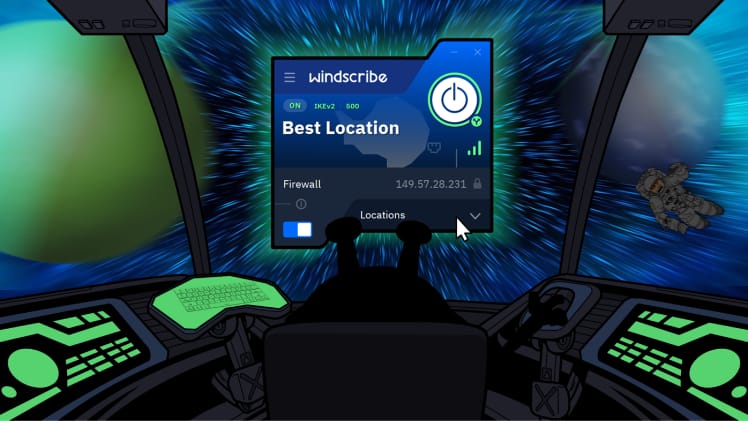
In today’s internet-driven world, bandwidth throttling is a reality that many users face. This practice, where internet service providers (ISPs) intentionally slow down your internet speed, can be frustrating, especially when streaming, gaming, or engaging in other bandwidth-intensive activities. Fortunately, there’s a way to combat this issue: using a Free VPN. In this article, we will explore how free VPNs can be your shield against bandwidth throttling, and delve into the technical aspects of VPNs, making this guide both informative and engaging.
Bandwidth throttling occurs when ISPs deliberately slow down your internet speed. This can happen for various reasons: managing network traffic, minimizing bandwidth congestion, or even as an attempt to incentivize higher-tier service plans. Throttling often targets specific online activities or services, like streaming services, P2P file sharing, or large downloads. Sometimes these restrictions on bandwidth may be authorized locally, usually via some web filter or DNS management service (more on that later) by your IT team if you are at work or attending a conference where the organizers want an equitable distribution of bandwidth across all attendees.
A VPN, or Virtual Private Network, encrypts your internet traffic and routes it through a server in a location of your choice. This process masks your real IP address and the nature of your online activities, making it difficult for ISPs to monitor and throttle your connection based on your internet usage.
When choosing the best free VPN to prevent bandwidth throttling, consider factors such as security features, server locations, and speed. A good VPN should use strong encryption to protect your data, have a no-logs policy, and provide sufficient speed to handle your online activities. For more detailed insights on selecting a suitable VPN, this resource is invaluable: How to Pick a Good VPN.
Encryption: VPNs use encryption protocols like OpenVPN or IKEv2 to secure your data. This encryption is what keeps your online activities hidden from your ISP.
Server Network: The size and distribution of the server network impact your VPN experience. A more extensive network means more options to bypass throttling.
Speed: While VPNs can slow down your connection due to encryption, a quality VPN minimizes this impact. Free VPNs might have limitations in speed compared to paid versions.
Data Caps: Some free VPNs have data limitations. Consider this when choosing a VPN for activities like streaming or downloading large files.
Choose and Download a Free VPN: Based on your research, select a free VPN that meets your needs for security, speed, and server availability.
Install and Set Up the VPN: Follow the installation instructions and set up the VPN on your device. This usually involves installing the app and logging in.
Connect to a Server: Choose a server location. Connecting to a server closer to your physical location usually offers better speeds.
Enjoy Unthrottled Internet: Once connected, your internet traffic is encrypted, making it harder for your ISP to throttle your connection based on content or activity.
While VPNs are excellent for encryption and privacy, managing your DNS requests is crucial for complete online security. DNS, or Domain Name System, is like the internet’s phonebook, translating domain names into IP addresses. However, DNS requests can expose your browsing history. Using a DNS Management Service, such as Control D, can give you control over these requests, adding an extra layer of privacy. Control D offers customizable DNS filtering options, enhancing your online experience. Find out more about their services here: DNS Management Service.
The decision to choose a free VPN should be driven by your specific online activities and needs. Different users require different features from a VPN, depending on whether they are streaming, browsing, or downloading. Let’s delve deeper into what to look for in a free VPN, based on these specific requirements.
Streaming content, especially in high definition, requires a VPN with exceptional speed and reliability. When selecting a free VPN for streaming, consider the following:
If your primary use for a VPN is secure and private browsing, look for the following features:
For users who frequently download files, especially large ones, the following VPN qualities are important:
Free VPNs, while beneficial, can have drawbacks like slower speeds, fewer servers, and data caps. Additionally, some free VPNs may not be as secure as their paid counterparts, potentially logging user data. Usually free VPNs fund their operations by ad sales using data generated by the users, while others operate using a freemium model, where essentially they have a mix of paid users and free users. The paid users generally keep business operations going and the hope is that someday, the free users will upgrade to premium plans.
In conclusion, free VPNs can be an effective solution to combat bandwidth throttling, offering a way to enjoy an unrestricted internet experience. By understanding the technicalities of how VPNs work and carefully selecting a free VPN that aligns with your needs, you can protect yourself from ISP throttling practices. Combine this with a robust DNS Management Service like Control D, and you elevate your online privacy and security to the next level. Remember, the key to a fulfilling online experience is not just in bypassing restrictions but also in ensuring that your digital footprint is secure and private.